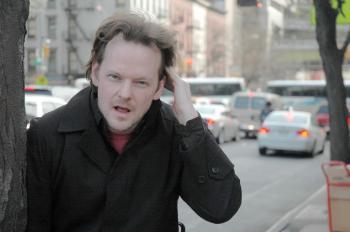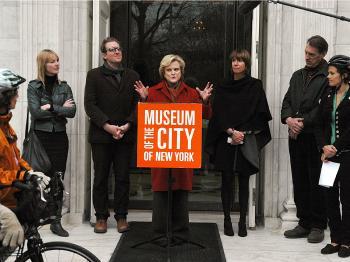“This report should be required reading for everybody in the city,” said Yassky, “We must cut taxes for those that are desperately clinging on with their fingernails to life in this city.”
The recommendation of the report is that New York City taxes be completely eliminated for 717,700 New Yorkers. This applies only to the households making less than $40,000 who, on average, will receive an additional $321 annually from it.
“People at this [income] level apparently have always been taxed like this,” said Quinn “Why hasn’t the city seen this and done something about it before? I don’t know.”
According to the report, two-thirds of the potential beneficiaries make less than $20,000 per year. Almost all of the beneficiaries are households with children and almost one in four New York Children lives in a household that would receive tax relief.
“This income tax restructuring will provide a big boost to the low income and moderate income New Yorkers who are among the hardest hit by this recession while also stimulating the city’s economy by putting money into the hands of those most likely to spend it quickly,” said Griffith in the press release. “The modest realignment we propose will remove a major barrier in the path of current and aspiring middle class families struggling to make ends meet.”
Some might think that it is not fair for everybody else to have to pay city taxes while these people don’t have to pay a penny but that is not entirely true. “Your poor working family with $20,000 in income is still getting taxed,” said Senator Krueger. “Every time they go out and buy something we are getting tax revenue from them. Con-Ed bills and basic household goods all are a source of money for the city.” She went on to ask why they should have to pay New York City taxes when they are free from State and Federal taxes.
“This is a win for NYC, this is good for the economy,” said Krueger. “This money will be spent quickly, mostly at locally owned businesses for household needs. The stimulus money going to these families won’t end up in TARP funds or overseas accounts, it will be spent because these people have to spend it.”
“This reform will put more money into the pockets of hundreds of thousands of New Yorkers who have been stretched to or beyond their limit,” said Quinn. “This isn’t just about basic tax fairness; it’s a way to stimulate the economy. Local businesses are in desperate need of money as the economy worsens.”
Part of the recommendation of the report is the institution of a new tax bracket for those making greater than $500,000 yearly. They would be taxed 3.285 percent compared to the current rate of 3.2 percent. “The upper levels of these tax brackets aren’t fair,” said Quinn, “A millionaire and a school principal are in the same tax bracket.”
According to a press release, in 2008 New York City raised an estimated $71.9 million by taxing these families. That’s less than two-tenths of one percent of the city’s revenue for the year.


